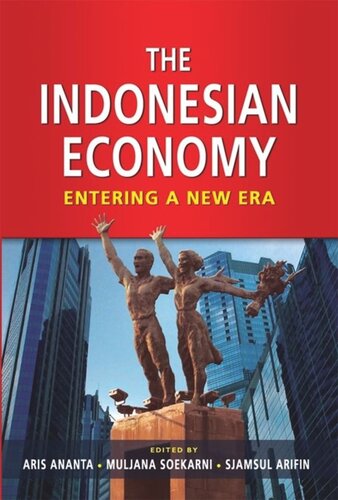

Most ebook files are in PDF format, so you can easily read them using various software such as Foxit Reader or directly on the Google Chrome browser.
Some ebook files are released by publishers in other formats such as .awz, .mobi, .epub, .fb2, etc. You may need to install specific software to read these formats on mobile/PC, such as Calibre.
Please read the tutorial at this link: https://ebookbell.com/faq
We offer FREE conversion to the popular formats you request; however, this may take some time. Therefore, right after payment, please email us, and we will try to provide the service as quickly as possible.
For some exceptional file formats or broken links (if any), please refrain from opening any disputes. Instead, email us first, and we will try to assist within a maximum of 6 hours.
EbookBell Team

5.0
48 reviews"Indonesia is one of the few countries that came through the global economic crisis in 2008-09 with positive economic growth. Despite some recorded positive domestic economic performances, Indonesia faces new challenges as its economy keeps growing and the global economy remains uncertain. A new economic development paradigm is needed to overcome old problems (poverty and unemployment, inadequate infrastructure, corruption, a complex regulatory environment, and unequal resource distribution among regions) with global market opportunities. This book provides a new perspective on how Indonesian’s economic policies should be developed by considering its past and future challenges." - Firmanzah, Professor of Economics and Dean of Faculty of Economics, University of Indonesia "Aris Ananta, Muljana Soekarni and Sjamsul Arifin gather excellent researchers and practitioners to discuss important economic policy issues for Indonesia today. They discuss monetary and fiscal policies and real economic sector issues based not only on theoretical analysis but also on their day-to-day experience in economic management. By reviewing Indonesia's economic policy reform and subsequent Asian financial crisis and sub-prime loan crisis, the authors present a new economic development paradigm and explore economic strategy and policies for the new era. The book offers many timely lessons from history, as well as the real policy experiences of the authors, and guides readers in exploring economic policies under the globalized world economy. This book is very useful for both practitioners and researchers." - Masaaki Komatsu, Professor of Economics, Hiroshima University